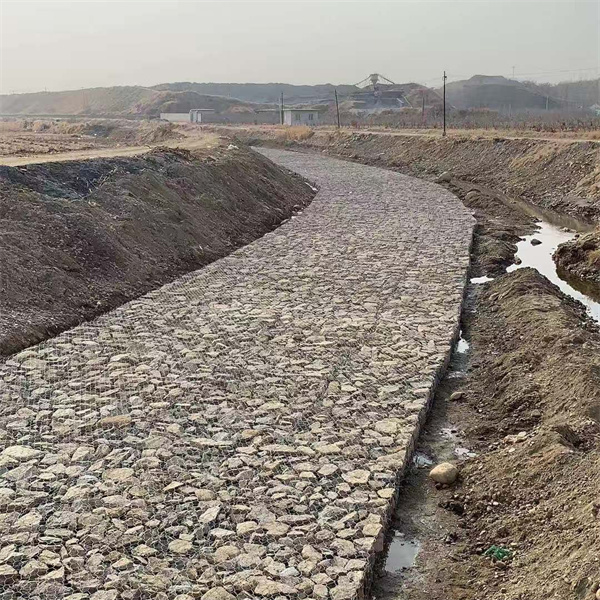Nën . 22, 2024 04:02 Back to list
china gabion wall thickness
Understanding Gabion Wall Thickness in China
Gabion walls have become increasingly popular in China for various construction and landscaping projects. These structures are composed of wire mesh baskets filled with stones, rocks, or other materials, making them robust and aesthetically pleasing. One key consideration in the design and implementation of gabion walls is their thickness, which significantly influences their performance, durability, and installation requirements. In this article, we will explore the importance of gabion wall thickness, relevant standards in China, factors affecting thickness, and best practices for construction.
The Importance of Gabion Wall Thickness
Gabion wall thickness plays a critical role in maintaining structural integrity and stability. A thicker wall can resist greater lateral loads, making it ideal for areas susceptible to erosion, flooding, or seismic activity. Additionally, thickness contributes to the overall durability of the wall, allowing it to withstand harsh environmental conditions and provide long-lasting solutions for both urban and rural applications.
In China, where infrastructure development is rapidly advancing, gabion walls are commonly used for flood control, soil erosion prevention, and aesthetic landscaping. The thickness of these walls can vary widely based on their intended purpose, environmental conditions, and local regulations. A well-designed gabion wall not only enhances functionality but also complements the surrounding landscape, making thickness a vital consideration in the design process.
Standards and Regulations
In China, the design and construction of gabion walls are guided by national standards and regulations. The Chinese Standard GB/T 28336-2012 outlines the technical specifications for the construction of gabion structures. This includes recommendations for material selection, mesh specifications, and, importantly, guidelines on required wall thickness for different applications.
Typically, the thickness of a gabion wall can range from 0.5 to 1 meter for general applications. However, in high-stress environments, such as areas prone to heavy rainfall or vehicular traffic, the required thickness may increase significantly. Following these regulations ensures that the structures are safe, reliable, and capable of withstanding natural forces.
Factors Affecting Gabion Wall Thickness
Several factors influence the appropriate thickness for gabion walls in various applications. These include
1. Load-bearing Capacity The anticipated loads placed on the wall significantly affect its thickness. This encompasses not only the weight of the wall materials but also any additional pressure from soil, water, or structures above.
china gabion wall thickness

2. Soil Conditions The stability of the soil on which the gabion wall is built is crucial. In softer soils, a thicker wall may be necessary to maintain balance and prevent sliding or collapse.
4. Design Purpose The intended use of the gabion wall—whether for erosion control, retaining soil, or aesthetic landscaping—also plays a significant role in determining thickness. Retaining walls often require more significant thickness compared to decorative installations.
5. Construction Quality High construction standards can allow for slightly reduced thickness while maintaining safety. Proper filling of the gabions, solid anchoring, and quality materials are essential for optimizing wall thickness.
Best Practices for Construction
To ensure the effectiveness and longevity of gabion walls, following best practices in construction is essential
- Material Quality Use high-quality wire mesh and durable fill stones to avoid deterioration over time. Corrosion-resistant materials are recommended for longevity, especially in wet conditions.
- Regular Maintenance Periodic inspections and maintenance can extend the life of gabion walls. Addressing any rust, erosion, or structural issues promptly is crucial.
- Proper Drainage Incorporating drainage systems can prevent water buildup behind the wall, which can increase lateral pressure and compromise the structure’s integrity.
Conclusion
In conclusion, gabion wall thickness is a critical aspect of design and construction in China. By understanding the importance of thickness, adhering to national standards, and considering various influencing factors, engineers and builders can create effective and durable gabion walls. With careful planning and execution, gabion walls can serve as reliable structures that enhance the safety and beauty of landscapes across the country.
-
Wire Mesh Thickness Impact on Gabion Wall Load Bearing
NewsAug.12,2025
-
Ultimate Guide to Hexagonal Gabion Box
NewsAug.12,2025
-
Types of Rocks for Gabion Baskets Durability and Aesthetics
NewsAug.12,2025
-
Standard Gabion Box Sizes and Their Industrial Applications
NewsAug.12,2025
-
Easy Guide to Building Garden Gabion Cages at Home
NewsAug.12,2025
-
Drainage Solutions for Gabion Mesh Structures
NewsAug.12,2025
-
Visualizing Gabion 3D Integration in Urban Landscapes with Rendering
NewsJul.23,2025






